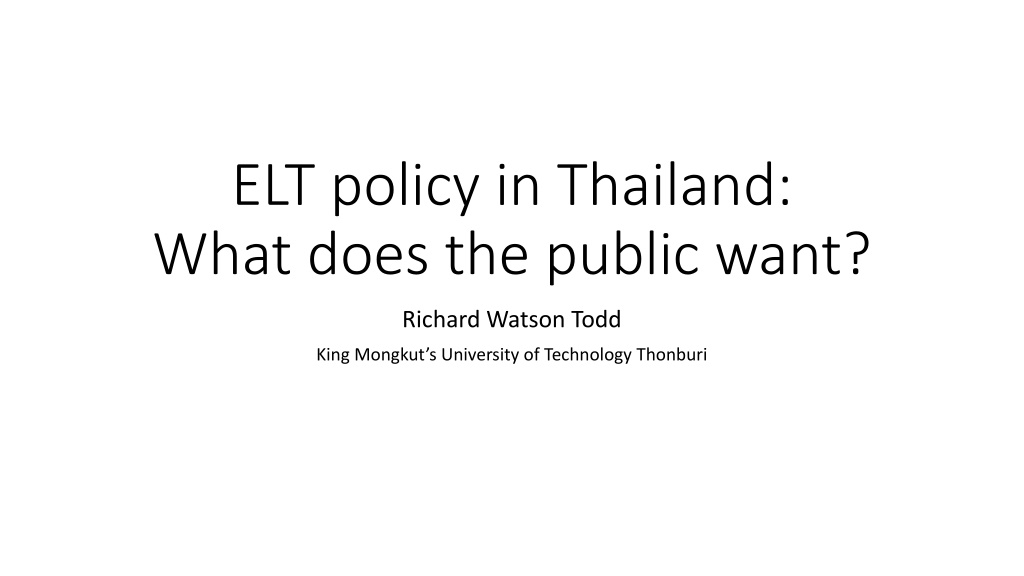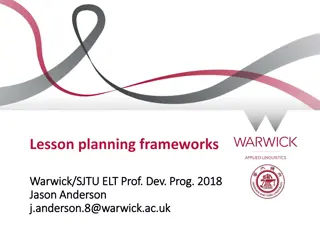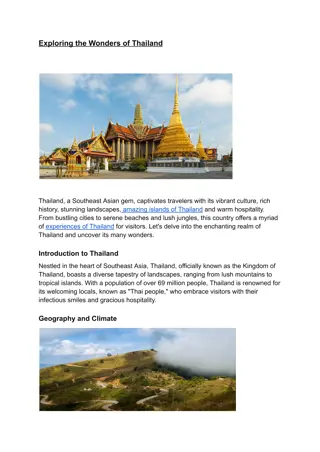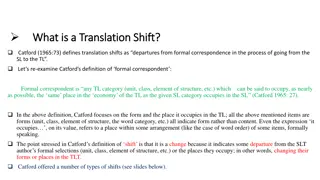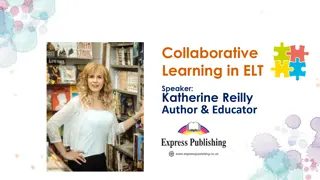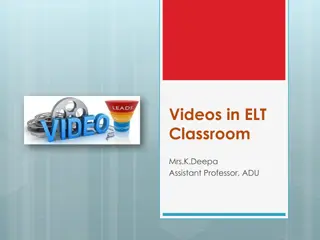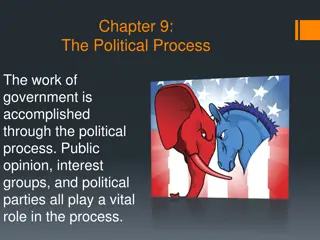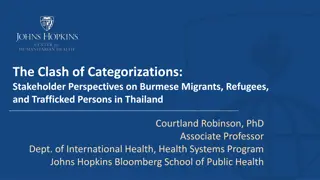Analysis of ELT Policy in Thailand: Public Opinion and Policy Shifts
The study explores the evolution of English Language Teaching (ELT) policies in Thailand based on public preferences, governmental decisions, and international influences. It delves into the implications of knee-jerk policy reactions, the need for sustainable policy-making practices, and the importance of integrating public input in educational policies to enhance sustainability and effectiveness.
Download Presentation

Please find below an Image/Link to download the presentation.
The content on the website is provided AS IS for your information and personal use only. It may not be sold, licensed, or shared on other websites without obtaining consent from the author. Download presentation by click this link. If you encounter any issues during the download, it is possible that the publisher has removed the file from their server.
E N D
Presentation Transcript
ELT policy in Thailand: What does the public want? Richard Watson Todd King Mongkut s University of Technology Thonburi
Shifting policies Minister Dates Brain-based learning One laptop per child Dream schools Morals and knowledge Adisai 2003-2005 Initiates BBL with substantial funding Proposes OLPC Starts dream schools Chaturon 2005-2006 Reduces funding for BBL Negotiates for OLPC Continues dream schools Wijit 2006-2008 Further reduces funding for BBL Scraps OLPC Scraps dream schools Prioritises morals over knowledge Somchai 2008-2008 Restarts negotiations for OLPC Revives dream schools Prioritises knowledge over morals
Knee-jerk policies and face Poor test results for PISA assessment Proposal to change national tests to mirror PISA Copy educational system of successful PISA country (e.g. Finland) Provide budget to train teachers and students to answer PISA questions Ask PISA to exclude small schools from testing to improve national average
Patterns in Thai policy making Lack of sustainability in current Thai policy making practice
Increasing sustainability in Thai policy making Basing policy on evidence Meta-analyses Task-based teaching Strategy instruction Large-scale multiple-location studies Whole-class interactive teaching Challenging tasks Syntheses of research Process writing Collaborative writing Limited applicability to ELT policies Contradictory evidence on best age to start learning an L2 Only one study of class size effects on learning
Increasing sustainability in Thai policy making Public input into educational policies
Eliciting public input into educational policies Policies are complex issues which are expensive to implement Respondents in public opinion polls are often asked to give off-the-cuff responses to questions of public policy that are usually of limited interest to most voters. (Fishkin et al. 2000) Unrepresentative and anecdotal data Time-consuming and expensive Highly constrained issues Survey Focus groups Public hearings
Eliciting public input into educational policies Policies are complex issues which are expensive to implement Respondents in public opinion polls are often asked to give off-the-cuff responses to questions of public policy that are usually of limited interest to most voters. (Fishkin et al. 2000) Unrepresentative and anecdotal data Time-consuming and expensive Highly constrained issues Survey Focus groups Public hearings
Eliciting public input into educational policies Simulation: Choosing projects to fund within a limited budget Addresses complexity: projects have pluses and minuses Addresses expense: limited budget means choices need to be made Ministry of Education Game: MinEd Game (meg.ibankstory.com)
MinEd Game 52 project variants Increasing English in the curriculum by one hour per week Cost: 800 million baht Improve ONET scores, but reduces overall education quality because another subject loses an hour Change ONET exams to include open items (e.g. essays) Cost: 250 million baht Increase overall education quality and EF EPI score, but reduce scores on ONET and increase inequalities
MinEd Game results First 300 respondents 3 most chosen projects 3 least chosen projects Implement school buddy system (swapping teachers between high and low performing schools): 50mB Increase teacher salaries by 2,000 baht per month: 1700mB Implement school quality assurance with increased budget for underperforming schools: 100mB Give schools full budget control: 1200mB Increase English on mainstream TV (e.g. adding English subtitles to soap operas): 400mB Increase hours of English per week by 2 hours: 1500mB
MinEd Game results Differences between students and teachers (p<0.01) Students: Employ a native English-speaking teacher in all government schools: 1300mB Teachers: Implement school buddy system (swapping teachers between high and low performing schools): 50mB Differences between Thai and non-Thai respondents (p<0.01) Non-Thais: Provide learning for non-Thai children: 350mB There are thousands of non-Thai children in Thailand who have difficulty accessing education (e.g. the children of Burmese migrant workers). Providing education for all fits with UNESCO goals and so leads to an increase in overall education quality.
MinEd Game for sustainability in Thai ELT policy Better PR Influencing Ministry
